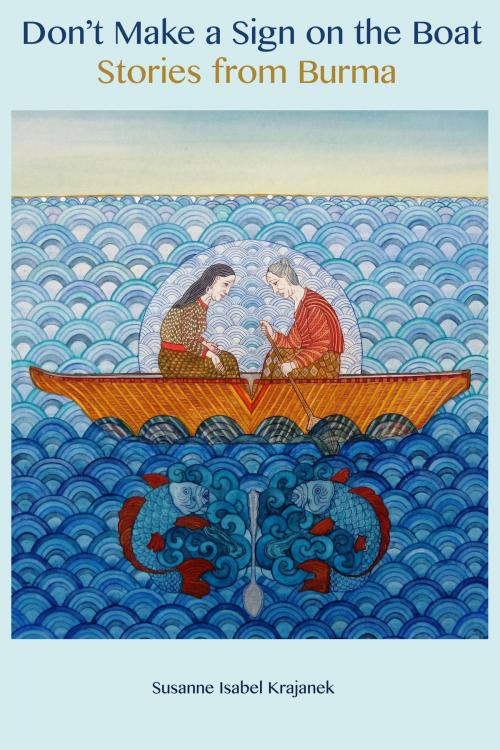Don't Make a Sign on the Boat, Stories from Burma
Fiction & Literature, Cultural Heritage, Literary Theory & Criticism| Author: | Susanne Isabel Krajanek | ISBN: | 9781310338700 |
| Publisher: | Susanne Isabel Krajanek | Publication: | August 14, 2014 |
| Imprint: | Smashwords Edition | Language: | English |
| Author: | Susanne Isabel Krajanek |
| ISBN: | 9781310338700 |
| Publisher: | Susanne Isabel Krajanek |
| Publication: | August 14, 2014 |
| Imprint: | Smashwords Edition |
| Language: | English |
A collection of stories from Myanmar (Burma), told by Sayadaw UNyaneinda, Abbot of the old Burmese Temple in Bodhgaya and written down in this form by Susanne Isabel Krajanek, born in Austria and living in Bodhgaya, India, for many years.
Hidden in most of the tales is some piece of advise, such as how to manage a certain situation, or to show how things generally turn out. Some are simply amusing in the Burmese way.
‘Don’t Make a Sign on the Boat’ is a well-known and well-loved proverb in Burma and very typical for the people’s Buddhist attitude of mind. It has much to do with our continuous attempt to preserve things, which are by nature transient and passing.
Between two variations with the same title, concerning young people just starting out on their life’s journey as the first story, and an old couple in the last, is set a rich variety of different themes, which also draw a beautiful picture of the daily life in the villages and small towns in the countryside along Burma’s Great River.
There are farmers, fishermen and storytellers, rich men and poor shopkeepers, the Joker, the King and the Wise Man, the Little One who challenges Wind and Rain and the Two Blind Men. Also, the Hunter, Tiger, Dog and Monkey teach us lessons. Always somewhere included is the Buddhist monastery, the monk and the gods of the rivers and trees.
Each one is not only a story, but also shows very common situations in life.
We clearly can see the love of the Burmese people for the fantastical and surreal, for their old gods and kings and for their Buddhist Tradition.
We find a mixture of simplicity and complex psychology. There are often sudden humorous twists and turns in the course of events, which seem rather absurd.
Some of the stories are quite old, but, if one forgets about the kings, they could happen today, because in the villages, in the life of the simple people, there has not changed that much.
A collection of stories from Myanmar (Burma), told by Sayadaw UNyaneinda, Abbot of the old Burmese Temple in Bodhgaya and written down in this form by Susanne Isabel Krajanek, born in Austria and living in Bodhgaya, India, for many years.
Hidden in most of the tales is some piece of advise, such as how to manage a certain situation, or to show how things generally turn out. Some are simply amusing in the Burmese way.
‘Don’t Make a Sign on the Boat’ is a well-known and well-loved proverb in Burma and very typical for the people’s Buddhist attitude of mind. It has much to do with our continuous attempt to preserve things, which are by nature transient and passing.
Between two variations with the same title, concerning young people just starting out on their life’s journey as the first story, and an old couple in the last, is set a rich variety of different themes, which also draw a beautiful picture of the daily life in the villages and small towns in the countryside along Burma’s Great River.
There are farmers, fishermen and storytellers, rich men and poor shopkeepers, the Joker, the King and the Wise Man, the Little One who challenges Wind and Rain and the Two Blind Men. Also, the Hunter, Tiger, Dog and Monkey teach us lessons. Always somewhere included is the Buddhist monastery, the monk and the gods of the rivers and trees.
Each one is not only a story, but also shows very common situations in life.
We clearly can see the love of the Burmese people for the fantastical and surreal, for their old gods and kings and for their Buddhist Tradition.
We find a mixture of simplicity and complex psychology. There are often sudden humorous twists and turns in the course of events, which seem rather absurd.
Some of the stories are quite old, but, if one forgets about the kings, they could happen today, because in the villages, in the life of the simple people, there has not changed that much.















